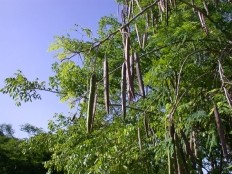 |
Rose Anne Auguste, the Minister Delegate in Charge of Human Rights and the Fight against Poverty Extreme, recently met with a delegation from the Lifestyle Ministries (LMI) International and of the Community of British Columbia (Canada). During this meeting, the delegation was able to establish with the Office of the Minister various cooperation frameworks.
The LMI and community representatives from British Columbia said they were interested in developing urban agriculture in Haiti, in the precarious neighborhoods, to help families to improve their socio-economic and nutritional situation.
The LMI has submitted to the Office of the Minister, a projet of production of “Moringa” in precarious neighborhoods, based on the experiences of evelopment of this plant in several countries in Africa and Asia. During its presentation, it was question of different nutritional qualities, of various agricultural aspects, of multiple derived products and the existence of an international market for the sale of products of this culture, in various forms (leaves, powder etc…) as well as the economic potential of the Moringa, already present in Haiti.
The Delegation considers that a better development of the culture of “Moringa” in the villages of the country, can have a real economic and social impact among poor families. The LMI and community representatives from British Columbia, indicated that they could ensure the production and distribution of 10,000 seedlings within two weeks to the families interested.
The Office of the Minister Delegate and members of the Canadian delegation agreed on the holding of a training on the practice of the culture of “Moringa” for 20 representatives of organizations of precarious neighborhoodsof Carrefour feuilles, of Cité Soleil, of Martissant, of Fort Mercredi and of Delmas.
Learn more about the Moringa
“Moringa oleifera, simply called Moringa, native to northern India, is a plant food (small tree) with multiple use, today acclimatized in almost all tropical regions, it is resistant to drought and has a rapid growth.
Cultivated for its fruits (pods), which are eaten cooked or exported fresh or canned, nutritional analysis showed that Moringa oleifera leaves (grown in Africa) contain two times more protein than yogurt, 3 times more potassium as banana, 4 times more calcium than milk, seven times more vitamin C than oranges and 4 times more vitamin A than carrots. Many programs, realized with the help of NGOs, are underway to develop the culture of Moringa, which would be, according to the NGOs, effective in the fight against malnutrition. Note, however, that in the absence of more detailed analysis, the World Health Organization refused by the precautionary principle, to recognize ntil now, the leaves of this plant as a nutritional supplement.”
HL/ PI/ HaitiLibre